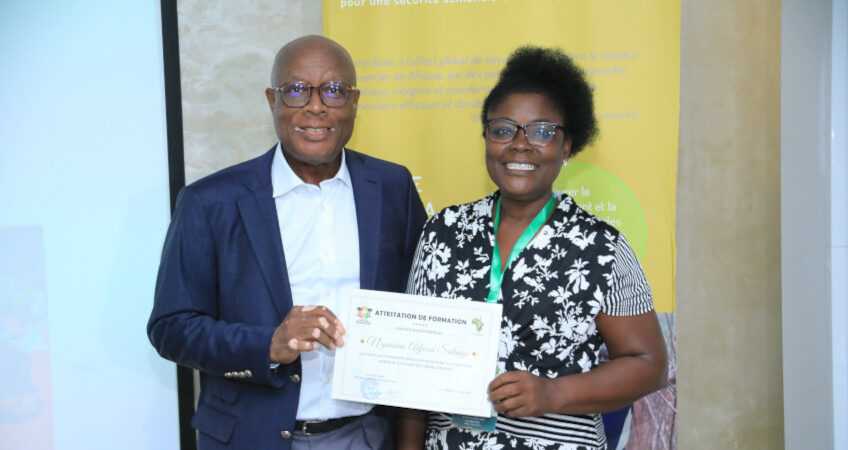From July 13 to 14, 2022 in Abidjan, AfricaSeeds, in collaboration with the Ivorian Ministry of Agriculture and Rural Development, organized a workshop for women seed producers. The aim was to improve their entrepreneurial skills and empower them to engage in seed enterprises creation and management.
The role of women in agricultural development in Côte d’Ivoire no longer needs to be demonstrated, their contribution being in many cases greater than that of men.
Unfortunately, women also face conditions that make their access to the means of production (land, credit, inputs for example) and knowledge more difficult, something that hinders their growth potential.
AfricaSeeds wants to unlock the potential of women active in the seed sector and enable them to contribute more significantly to the development of the sector and to the food security of their country.
Improving capacities
The workshop, which brought together 30 women leaders of seed producer groups with experienced seed producers and seed sector experts, has been an opportunity to inform and build the capacity of women involved in the production and distribution of quality seeds.
The training took place through information sessions during which the participants acquired specific knowledge about the creation and management of seed enterprises, including the administrative and regulatory conditions that characterize professional seed production.
The workshop also allowed participants to share their experiences with more experienced entrepreneurs and therefore to understand more concretely the challenges and opportunities that exist in the sector.
More confident women
The presence at the workshop of representatives of the main institutions active in seeds in the sub-region, such as CORAF, AfricaRice, and from Côte d’Ivoire, such as DGPSA, CNRA and MEMINADER, has further demonstrated the importance of seed sector development for Cote d’Ivoire, and for Africa in general.
Participants feel more confident in their abilities to meet the specific challenges of producing and marketing quality seed. They improved their business management skills, and they began to develop their network of contacts. These results will allow them to evolve in the world of seed companies and take advantage of newly acquired capacities and contribute to a more profitable and equitable seed sector and the overall transformation of agriculture.

